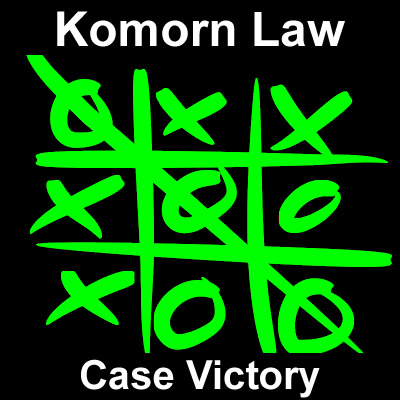Understanding the Foundation: A Summary of Michigan Rules of Evidence 401-411
The Michigan Rules of Evidence (MRE), specifically Rules 401-411, lay the groundwork for what evidence can be presented in court and how it might influence the outcome of a case. This article aims to provide a clear and concise overview of these foundational rules, drawing from the Michigan Rules of Evidence Handbook.
Rule 401: Test for Relevant Evidence
This rule is the cornerstone of admissibility. Evidence is considered relevant if it “has any tendency to make a fact more or less probable than it would be without the evidence” and the fact itself is “of consequence in determining the action.”
In simpler terms, relevant evidence helps make the case for or against a party through its connection to the underlying issues.
Rule 402: General Admissibility of Relevant Evidence
As long as evidence doesn’t run afoul of the Constitution, the Michigan Rules of Evidence, or other legal principles, relevant evidence is generally admissible. This rule reinforces the notion that all pertinent information should be considered by the court to reach a just decision.
Rule 403: Excluding Relevant Evidence for Prejudice, Confusion, Waste of Time, or Other Reasons
Even relevant evidence can be excluded if its potential for harm outweighs its probative value.
This means the court may decide not to allow evidence if it:
- Is unfairly prejudicial towards a party, creating undue sympathy or animosity.
- Confuses the jury or distracts them from the main issues of the case.
- Wasted time due to being repetitive or unnecessary.
- Presents cumulative evidence, meaning similar points have already been established.
Have your rights been violated?
Have your driving priviledges been revoked?
Has your professional license been suspended?
Have you been charged with a crime?
Call our office to see if we can help
Komorn Law 248-357-2550
Beyond the Basics: Rules 404-411
While Rules 401-403 establish the core principles of evidence admissibility, the subsequent rules delve deeper into specific types of evidence.
These include:
Character Evidence: Rules 404-410 limit the use of character evidence to prove or disprove an act on a particular occasion. Exceptions exist for specific situations, such as in criminal cases where self-defense is an issue.
Habit and Routine Evidence: Rule 406 allows evidence of a person’s habit or routine to be admitted if it’s relevant to an issue in the case.
Similar Occurrences: Rule 407 governs the admissibility of evidence of similar occurrences, generally excluding them unless they are highly probative of a specific issue.
Compromise and Offers to Compromise: Rule 408 limits the admissibility of compromise negotiations to prevent chilling settlements and encourage open communication.
Inadmissibility of Pleas, Plea Discussions, and Related Statements: Rule 410 protects defendants from having their withdrawn pleas or plea discussions used against them in certain legal proceedings.
Liability Insurance: Rule 411 generally prevents the use of evidence of liability insurance to prove or disprove negligence, though exceptions exist for other purposes like establishing agency or ownership.
Understanding the nuances of these rules is crucial for anyone involved in the legal system, from judges and attorneys to litigants and legal scholars. The Michigan Rules of Evidence Handbook provides a comprehensive guide to navigating these complexities, ensuring fair and just outcomes in Michigan’s courts.
Important:
This article provides a simplified overview of the Michigan Rules of Evidence for informational purposes only. It should not be interpreted as legal advice. When facing legal matters, always consult with a qualified attorney for professional guidance.
The Michigan Rules of Evidence are subject to change over time. Always consult the latest official version for accurate information.
Here is the link to the Michigan Rules of Evidence Handbook. Check the footer for the latest update.
Related Articles
No Results Found
The page you requested could not be found. Try refining your search, or use the navigation above to locate the post.
More Posts

The Right to a Jury Trial
When facing criminal charges you have the right to have a trial by jury. The justice system will offer you the right to a jury trial. It's just a matter if you can afford that right. A jury trial with an attorney that is not a public defender can be costly. If you...

Can Police Lie To You?
Police are allowed to lie to you. One might believe that if you ask an undercover cop if they are a police officer they have to tell you. That’s not true. Police can and will lie to you. It's legal for cops to lie The Police may legally lie, bluff, mislead and...

Client testimonies about their experience with the legal system
Komorn Law clients speak about their experience with the legal system Several of Komorn Law client's as well as other individuals have chosen to speak about their encounter with law enforcement, the legal system and how it has affected their lives, families and...

MICHIGAN MEDICAL MARIHUANA ACT – Section 4 Defense
Marijuana Criminal Defense Client with medical marijuana card was charged with marijuana possession. Client was assigned a court appointed lawyer and encouraged to plead guilty and accept 3 months of probation. Client hired Michael Komorn for representation and...

Michigan Methamphetamine Defense
Bill Schuette, the current Michigan Attorney General, is waging war against Meth users, dealers and labs. Innocent people get swept up with meth crimes when police run field tests on any powdery substances, frequently returning false positive results. Komorn...
Foster Care Agencies Allegedly Discriminated Against Poor, Medical Marijuana Patients
Two families -- including one mom who alleges Child Protective Services took her suckling baby from her breast -- are suing the state, alleging discrimination because they are medical marijuana users and poor. In the lawsuit, attorney Michael KOMORN alleges the...
MMMA-Profile-Michael-Komorn
Here are some links to articles posted by Attorney Michael Komorn US Government Collecting and Using Citizen Communications NATIONAL TOXICOLOGY PROGRAM Technical Report Series No. 446 (1996) Oral cannabis extracts as a promising treatment for the core...

Komorn Law – Victory in Genesee County
Komorn Law PLLC is proud to report a ruling today from the Genesee County Circuit Court. This case involved my client's property and all kinds of salacious allegations of really bad behavior by this property, and I mean bad stuff, like stuff you could never...

Komorn Law AVVO Ratings
KOMORN LAW AVVO - RATINGS Read Client AVVO Reviews

Komorn Law-In the News-Fox17
Komorn Law | In the News | Fox 17 News | Links Medical marijuana battle: Father fights for custody of son OTTAWA COUNTY, Mich. – Medical marijuana is a controversial, sometimes sticky issue, especially in Michigan. Max Lorincz is a father from Spring Lake who...








